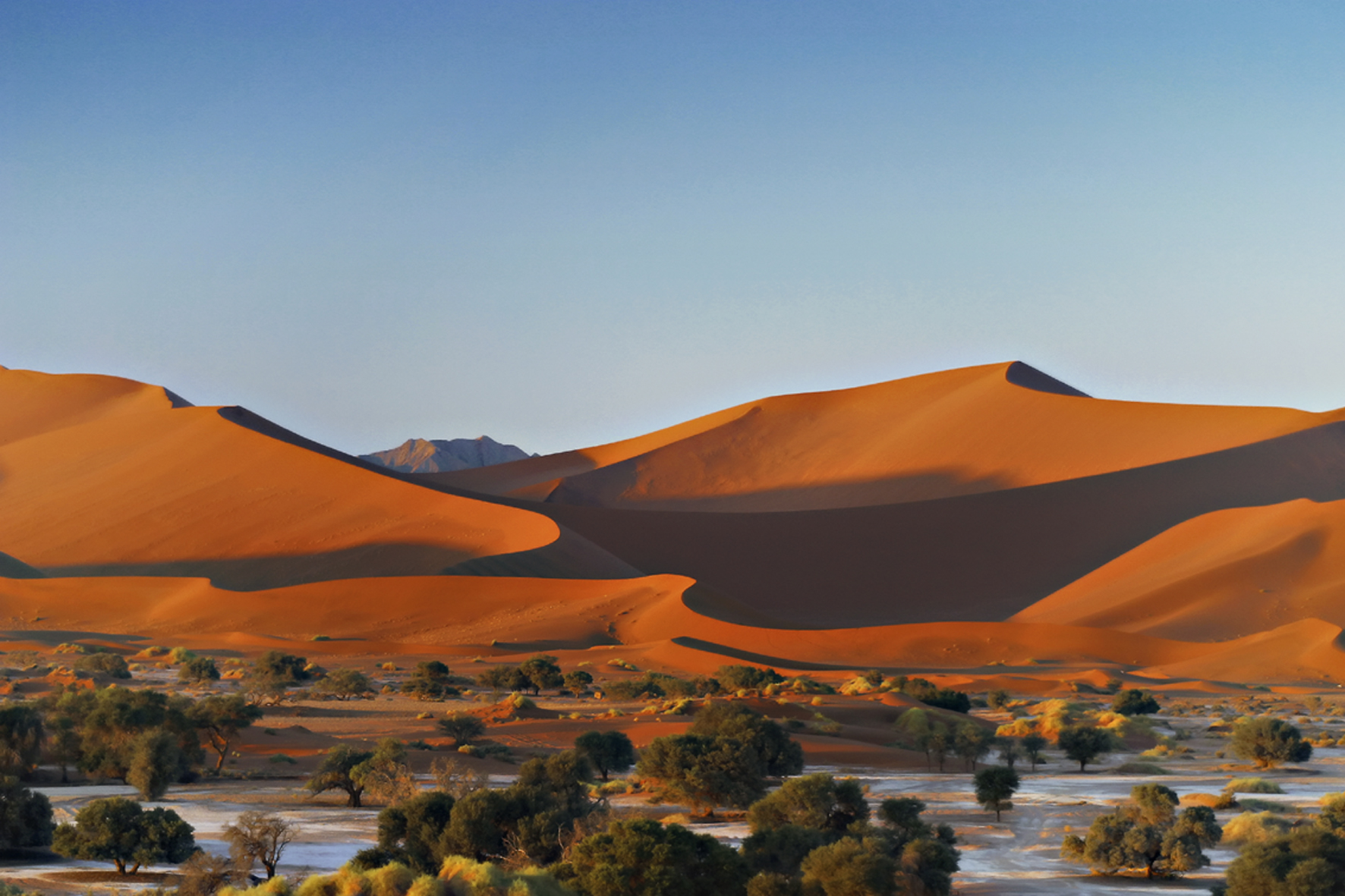Namibia
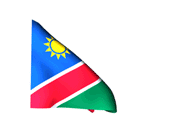
Namibia formerly German South-West Africa and then South West Africa,
is a country in southern Africa whose western border is the Atlantic
Ocean. It shares land borders with Zambia
and Angola to the north, Botswana to the east and South Africa to
the south and east. It gained independence from South Africa on 21 March 1990,
following the Namibian War of Independence. Its capital and largest city is Windhoek.
Namibia
has a population of 2.1 million people. Agriculture, herding, tourism and
the mining industry form the basis of Namibia's economy. Given the
presence of the arid Namib Desert, it is one
of the least densely populated countries in the world. Namibia enjoys
high political, economic and social stability.
Tourism
Tourism is very important for Namibia,
creating tens of thousands of jobs (18.2% of all employment) directly or
indirectly and servicing over a million tourists per year. The country is a
prime destination in Africa and is known for ecotourism which features Namibia's
extensive wildlife.
There are many lodges and
reserves to accommodate eco-tourists. In addition, extreme sports such as sandboarding,
skydiving and 4x4ing have become popular, and many cities have companies that
provide tours The most visited places include the capital city of Windhoek, Caprivi
Strip, Fish River Canyon, Sossusvlei, the Skeleton Coast Park, Sesriem, Etosha
Pan and the coastal towns of Swakopmund, Walvis Bay and Lüderitz.
Sport in Namibia
The principal sports
in Namibia
are football, rugby union, cricket, golf and fishing. Boxing and athletics are
also popular. The home stadium for all national teams is Independence Stadium
in Windhoek,
while Sam Nujoma Stadium in Katutura is also occasionally used.
The
most famous sportsman in Namibia
is: Frank "Frankie" Fredericks (born 2 October 1967) a former track and field
athlete. Running in the 100 metres and 200 metres, he won four silver medals at
the Olympic Games (two in 1992 and two in 1996), making him Namibia's first
and so far only Olympic medalist. He also won gold medals at the World
Championships, World Indoor Championships, All-Africa Games and Commonwealth
Games. Fredericks
has broken 20 seconds for the 200 metres 24 times. He also holds the
third-fastest non-winning time for the 200 metres. In August 1996, Fredericks ran 19.68 seconds in the Olympic final in Atlanta, Georgia.
He is currently serving as a council member in the IAAF.
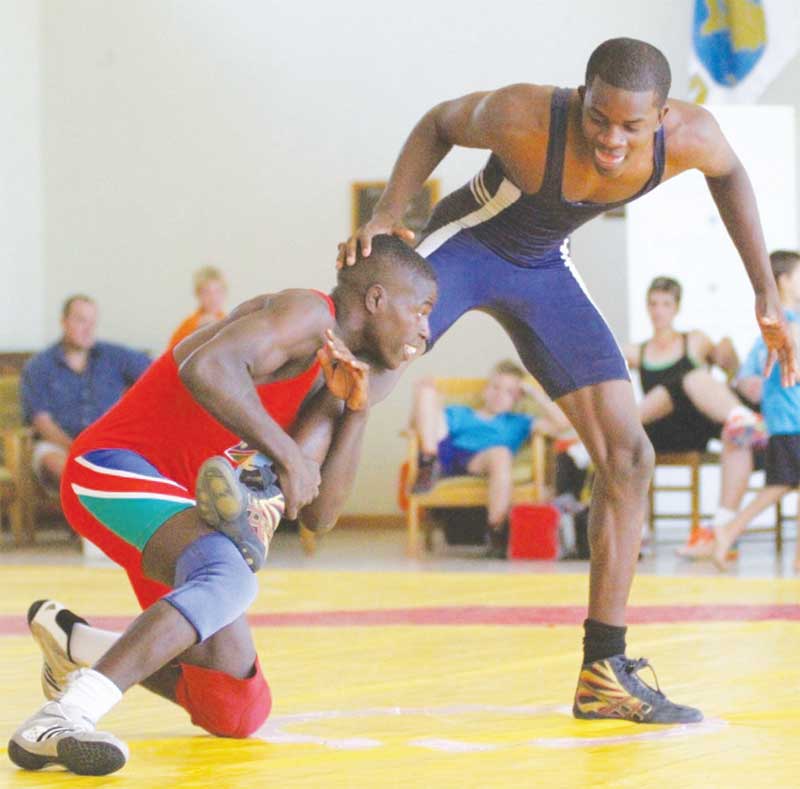 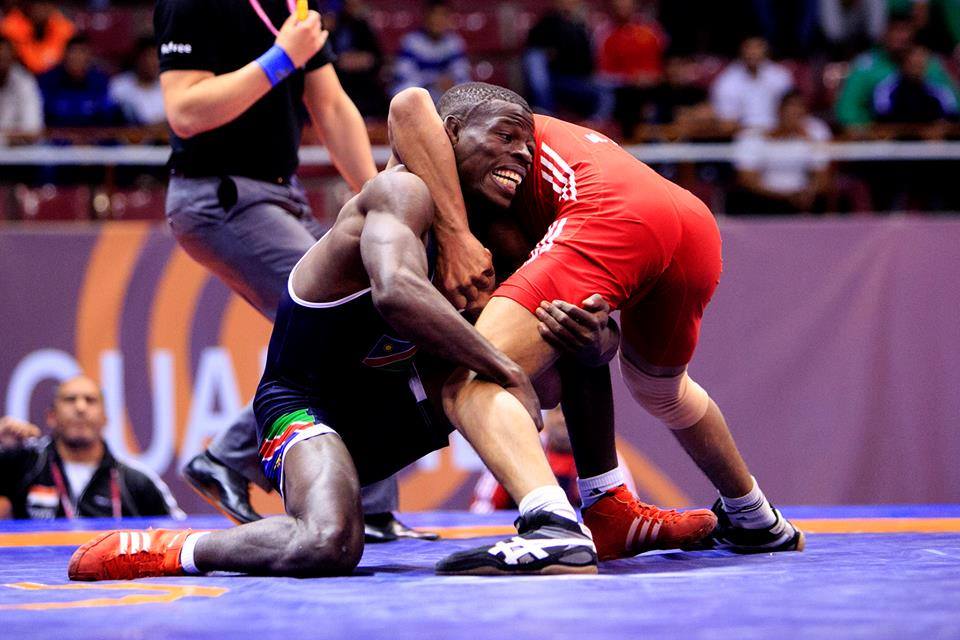
International Athletes for Namibia Sem Shilimela (left, red singlet) and Jason Afrikaner (rigth, blue singlet).
Wrestling in Namibia
Wrestling
in Namibia
has three names, wrestling in english,
Stoei in afrikaans and
Ringen in german. The Namibia Wrestling Federation (NWF) has its Headquarter in the
capitol Windhoek.
President of the Federation is Mr. Lukas Maree. The sparsely populated Namibia, with
only 2 million inhabitants, is generally sporty underdeveloped. Across the
country, there were in 2015 only 5 Wrestling clubs. The oldest Wrestling club
exists since the German colonial era and is called: "Alte Feste Wrestling
Club Windhoek".
International Situation
The
most succesful wrestler of Namibia
is: Nicolaas "Nico" Jacobs (born January 26, 1981 in Pretoria, South Africa).
He competed in the men's heavyweight category. Jacobs had claimed a bronze
medal in the 96-kg division at the 2003 All-Africa Games in Abuja,
Nigeria, and later became
the first Namibian wrestler in history to compete at the 2004 Summer Olympics
in Athens. A
graduate at the University of Calgary in Canada, Jacobs trained for the
university's wrestling team under his head coach Leigh Vierling. Jacobs
qualified for the Namibian squad, as the nation's first and lone wrestler, in
the men's heavyweight class (96 kg) at the 2004 Summer Olympics in Athens, with a remarkable
milestone. Earlier in the process, he placed sixth in the 97-kg division at the
2003 World Wrestling Championships in New
York City, United States,
which automatically secured him a spot for his Olympic debut. Naatele Sem
Shilimela (born 30 July 1991) is the second namibian Wrestler who competed at the 2012 Summer Olympics in London in the (-55 kg event).
Shilimelas
greatest success so far is third place at the African Championships 2012-55 Kg
freestyle. Shilimelas home club is the "After School Wrestling Club"
in Windhoek, but mainly he trained at the UWW Wrestling Training
Center Thies / Senegal
under professional conditions.
At
the World Championships 2015 in Las Vegas / USA,
the namibian wrestling federacion participated with three athletes.
Angula
Shikongo (bronze at the African Wrestling Championships), Lukas Thomas, Jason Afrikaner
and Sem Shilimela are the current international wrestlers for Namibia.
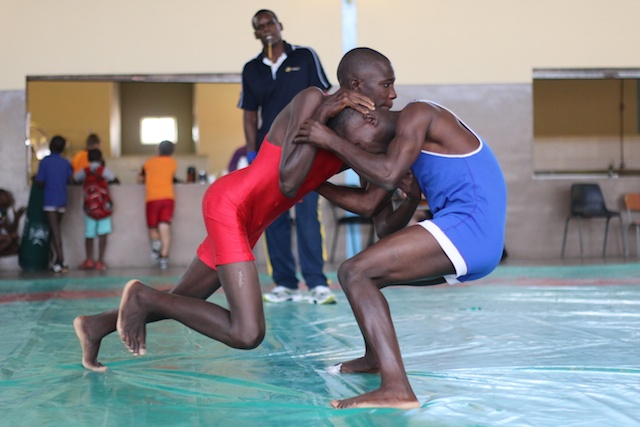 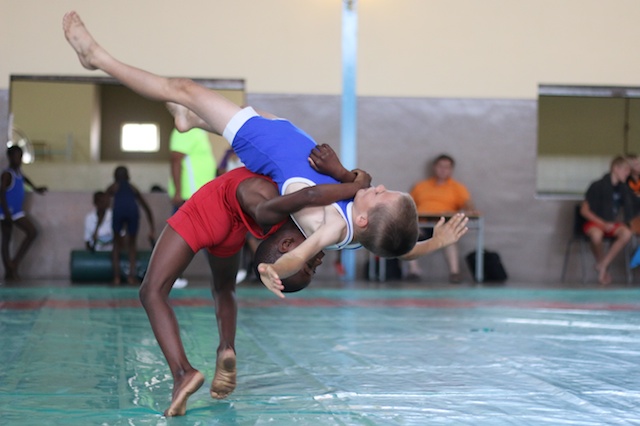
Wrestling shoes are not important for Namibias Youngsters!
National Situation
Until 1990,
Namibia was indeed South
African managed and linked to the sporting system in South Africa and thus excluded from
1971 to 1990 because of the apartheid policy of international competitions.
Since independence own structures were constructed. In most sports, as well
Wrestling, internal competition due to the small country population is low in Namibia.
Wrestling in Namibia
is characterized by a constant up and down. The following teams occurred in
recent years in publication. Alte Feste, NDF, Windhoek Wrestling Club, Windhoek
Wanderers and School Windhoek (all in Windhoek), OSG Otjiwarongo, Spartan
Okahandja and Swakopmund. Not all of these clubs could keep. 2015 still existed
five clubs:
After-school
wrestling club, Usakos Wrestling Club, Alte Feste Wrestling Club, Otjiwarongo
Wrestling Club and Windhoek Afrikaanse Privaat Skool Wrestling Club (WAP).
The Cuban
coach Luis Forcelledo Paz could set a new course in "After School Centre
Wrestling Club". The club from Khomasdal (suburb of Windhoek) has the tradition club "Alte
Feste" become obsolete in terms of performance. The International exchange
is difficult in southern Africa, but the wrestlers from Botswana and South Africa try to attend
tournaments each other.
Wrestling Development
Program
The
Namibian Wrestling Federation tries to establish eight new clubs before the end
of March 2016, with the towns and places identified for development at a grassroots’
level being Stampriet (Elnatan), Rehoboth, Swakopmund, Otjiwarongo, Okahandja,
Oshakati, Outjo and Khomasdal in Windhoek.
Wrestling
rides out troubling year to plan for 8 new clubs The establishment of eight new
clubs would set the wheels in motion for the formation of eight more clubs in
2017, with the aim being to establish 40 new clubs over the next five years.
Having
spent six weeks taking a coaching course in the USA over September and October,NWF
President Maree is hopeful that his experience gained there will assist the
development of this project.
“I,
together with 34 other high-profile coaches from all over the world, have been
on an International Coaching Enrichment Certificate Program for six weeks in
the USA under the
supervision of the Olympic Committee, US Olympic Committee and the University of Delaware during September and October.
This course hopes to help with the development of sport in general all over the
world. My project for this course will be to write a proper, workable, marketable,
sustainable and thorough development plan for wrestling which will cover
everything from grassroots’ development to the high-performance management of
athletes,” explained Maree.
“Our aim
for this development plan is to establish a foundation for sport in Namibia so
that other sports codes can borrow from it and adapt it to their needs”, he
added.
Wrestling
in Namibia
has been thriving at youth level over the last few years through the After-
School Centre’s Program, but somewhat stagnated at senior level. Maree said
this was mainly due to a lack of commitment from parents, ‘politics and
funding’ as well as the lack of a development program.
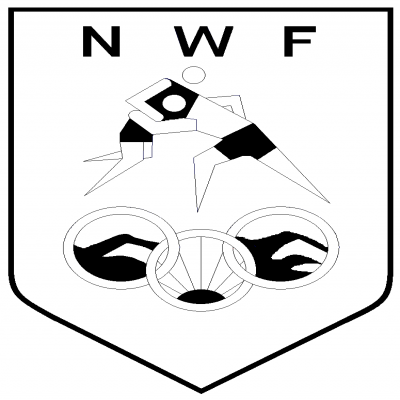
Wrestling
Federation: President Lukas Maree
+264 81 845
5236
Fax
Web
Address
P.O.Box 6956,
Ausspannplatz, Windhoek, Namibia
04 / 2016
|
